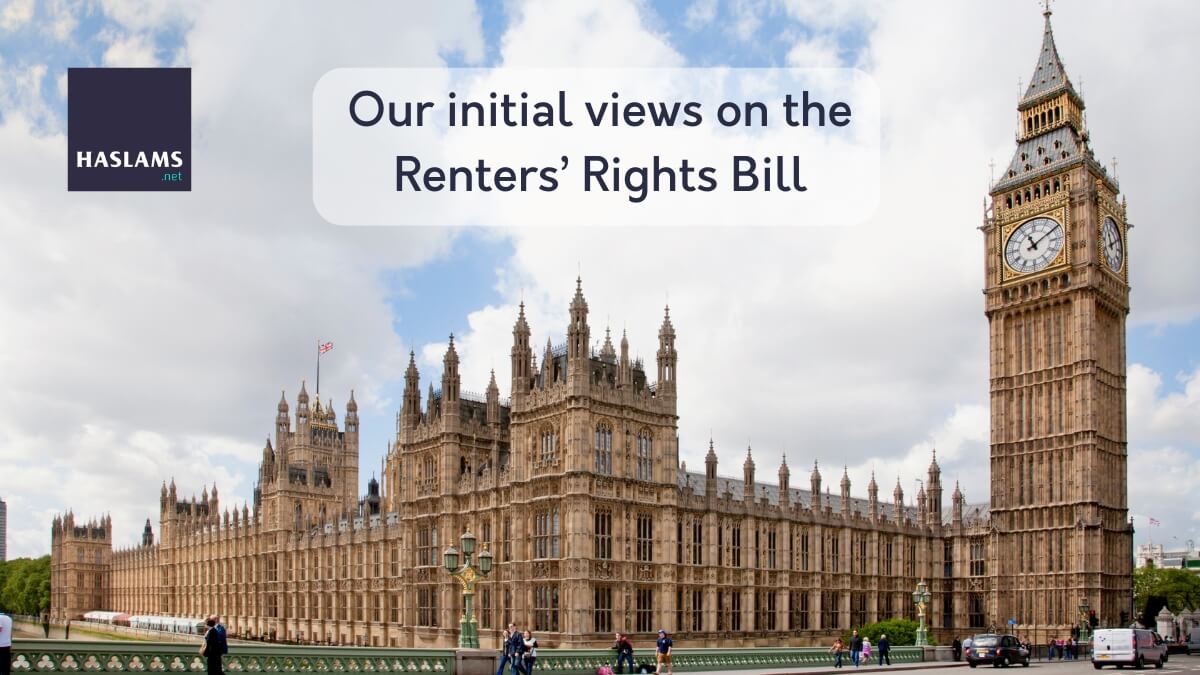The property letting industry is still digesting the ramifications of the Renters’ Rights Bill, and so the legislation may change as it goes through Parliament and the House of Lords.
Our headline is that there is nothing existential for landlords and we think the new Bill will not affect ~90% of tenancies – most tenants stay for 12-18 months, behave well, pay the rent and then move out. For these tenancies, nothing changes.
Some landlords may panic even though the market fundamentals here in Berkshire remain strong. This remains a market of rent growth, capital growth (just!), strong tenant demand, very low unemployment, amazing transport links and a world-class lineup of big employers. Plus there are restrictions on how much new supply can be built in and around the main urban areas.
To help give context, we have graded each section from A to E where A is good, and E is bad.
Ending fixed-term tenancies so that all tenancies become periodic, and tenants can give notice on day one of a tenancy
All tenancies will become Assured Periodic Tenancies. This is ideological and the central plank of the Government’s ambitions. We are fine with this as the Berkshire market is not that seasonal and the vast majority of tenants do not stay beyond 24 months. It is naïve to let tenants give two months’ notice on day one of a tenancy and we will need to be vigilant if tenants abuse this. Grade C
Banning Section 21 ‘no-fault’ evictions
This gets the headlines, but it is not a problem if the court system can cope with the new grounds of eviction. The truth is that we evict very few people if they are paying the rent on time – we estimate less than 0.3% a year. Grade B
A tenant must be in 3 months’ rent arrears before notice can be given and the notice is 4 weeks
Tenants will be four months in arrears before court proceedings begin. This is clearly not good for landlords nor for the tenants in debt. The subject is sensitive as those people who lose their jobs deserve some leeway and support. For context under 1% of our tenancies are in rent arrears. We expect that buying Rent Guarantee Insurance (RGI) will become a default for landlords. Currently, 40% of our landlords buy RGI through us. Grade D
A landlord cannot sell or move back in for the first 12 months of a tenancy and must then give 4 months’ notice…
This is arguably the fairest new policy. It is painful for tenants to move into a home only to be told the landlord wants to sell in a few months’ time. Grade B
… if the sale falls through, the property cannot be re-let for 12 months after first giving notice (8 months after putting the house on the market)
The Government has added this policy to stop people ‘pretending’ to sell. 8 months is too long, and the unintended consequence will be rental property sitting empty after a sale hasn’t materialised. Note: agent and landlord will both be fined if they re-market the property too early. Grade C
Rent increases can be done annually via a Section 13 notice
The notice period is two months, and the tenant can appeal to the (free) First Tier Tribunal. The new rent will only come into effect after the Tribunal has ruled. We are comfortable with the idea but question the pragmatics: can the Tribunal handle the volume? Who determines ‘market rent’? We foresee problems here. Grade D
The Decent Homes Standard will be applied to the private rented sector for the first time
This is still under consultation and in theory it is welcome – tenants deserve minimum standards of heat, safety, appliances, and protection against mould and hazards. However, it will require some form of support / incentives for landlords if they are to upgrade the 21% of privately rented homes which are supposedly Non-Decent. Grade B
Applying Awaab’s Law to the private rented sector
This is still under consultation and in theory is also welcome. It will impose minimum response times and standards if a tenant complains about certain issues. It already applies to social housing so it should also apply to the PRS. Grade A
A ban on rental bidding wars
A property can only be let for the price it is advertised at. In theory we are fine with this – bidding wars didn’t really exist before Covid so we can survive without them. The unintended consequence will be some landlords forcing agents to try above-market rents which will slow down letting and risk voids. We do not recommend this approach – we work hard to advise on the right rent first time and our current letting performance demonstrates that our approach works. Grade B
Abolishing blanket bans on tenants with children or those in receipt of benefits to ensure fair access to housing for all
This is fair and reasonable, and we already have a number of tenants who receive benefits. The ‘but’ is that a fully employed tenant will still be seen as less risky than someone on benefits. Grade B
A tenant cannot pay rent for more than 1 month in advance
This is unhelpful. It is standard practice for someone with no employment and/or no credit history (e.g. a student from overseas) to pay their rent in advance. The unintended consequence is that either a) these tenants will be marginalised and will struggle to find a home, or b) agents and landlords will ignore the policy. Grade E
Create a digital private rented sector database
with information for landlords, tenants, and councils. In theory, this is fine if the information is secure. Grade B
All landlords and agents will need to join a redress scheme
We already belong to The Property Ombudsman but apparently, landlords will also need to join separately, which seems odd. Irrespective of the apparent duplication, an effective redress scheme is essential to professionalise the industry. Grade C
Tenants will be able to request a pet and landlords cannot unreasonably refuse
Landlords may request pet insurance to cover any potential damage to the property. It seems that any head lease clauses re. pets will still stand. This policy taps into a wider trend of pets increasing in popularity and it seems reasonable. Grade B
If you have any questions on the above, please email lettings@haslams.net or call a member of our team on 0118 960 1055.

